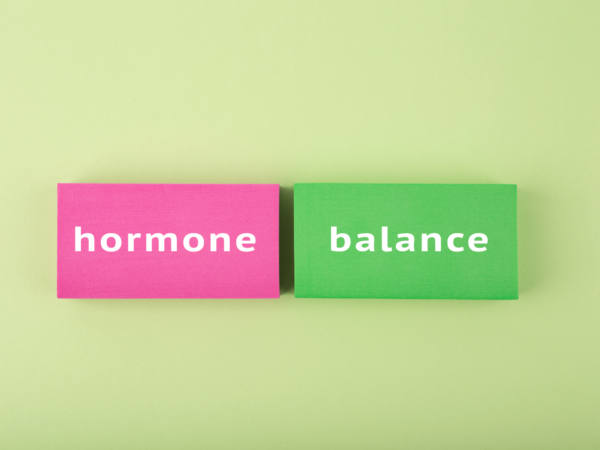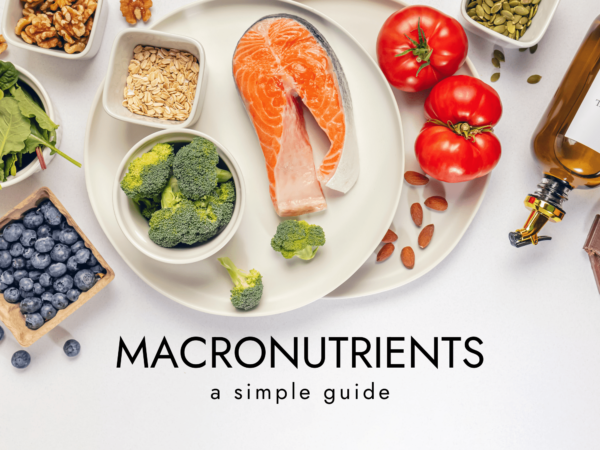Welcome to a journey of self-discovery and empowerment, where we unravel the secrets to achieving hormonal balance for women’s wellness. In this captivating voyage, we’ll navigate the intricate pathways of your body’s hormonal symphony, shedding light on the significance of harmony and vitality.
Crucial role of hormonal balance in women’s well-being
Picture your body as a grand orchestra, each hormone playing a unique instrument. Hormonal balance ensures that this symphony plays harmoniously, creating an exquisite melody of well-being. These hormones, like conductors, direct everything from your mood to your energy levels, your menstrual cycle to your metabolism. When they work together perfectly, you feel your best, vibrant and full of life.
Now, consider hormonal imbalances as discordant notes within this symphony. Irregular periods, mood swings, stubborn weight gain, and energy crashes are the cacophonies that disrupt your hormonal masterpiece. They can stem from various factors, from diet and lifestyle to genetics and environmental influences.
Your roadmap to hormonal harmony
As we explore the topic of hormonal balance for women, we aim to shed light on how nutrition can be your powerful ally in achieving this elusive harmony. This blog post is your guide to understanding nutrition’s critical role in your hormonal orchestra.
Throughout our voyage, we’ll embark on a multi-faceted exploration:
Understanding hormonal balance
We’ll unravel the intricacies of hormones, their roles, and how imbalances can impact women’s health and well-being.
The role of nutrition
We’ll dive into the profound connection between diet and hormonal balance, exploring how the foods you choose can enhance or disrupt your hormonal harmony.
Key nutrients
Discover the hero nutrients that play starring roles in your hormonal symphony, and learn which foods provide these essential elements.
Hormone-friendly diet plan
We’ll craft a delectable meal plan that promotes hormonal balance, ensuring that your dietary choices sing in perfect harmony.
Foods to avoid
Uncover the culinary culprits that can disrupt your hormonal masterpiece, and understand why these should be limited or avoided.
Lifestyle tips
We’ll explore the broader aspects of well-being, from stress management and exercise to sleep quality and environmental toxin avoidance, all essential components of your hormonal wellness.
Herbal remedies and supplements
Venture into natural herbs and supplements to find potential allies in your quest for hormonal balance.
Tracking and monitoring hormones
Learn the art of tracking your hormonal rhythms, empowering you to make informed choices and seek professional guidance when needed.
Additional resources
Discover a wealth of knowledge and guidance from books, websites, and experts, and take the first steps towards reclaiming your hormonal harmony.
Now that we’ve set sail on this exhilarating journey, prepare to unlock the secrets of hormonal balance through the power of nutrition and holistic wellness. Let the adventure begin!

Understanding Hormonal Balance
Welcome to the intriguing realm of hormonal balance. In this chapter, we’ll embark on a journey of discovery, peeling back the layers to reveal the inner workings of your hormonal orchestra.
Hormones and their role in the body
Imagine hormones as the conductors of your bodily orchestra, directing every function and mood. Various glands, such as the thyroid, adrenals, and ovaries, produce these chemical messengers, each with a unique role.
Insulin: Regulates blood sugar levels.
Thyroid hormones: Control metabolism.
Oestrogen and progesterone: Influence the menstrual cycle and maintain reproductive health.
Cortisol: Responds to stress and regulates metabolism.
Testosterone: Plays a role in muscle and bone health and mood.
Serotonin: Affects mood, appetite, and sleep.
These hormones must work together harmoniously to achieve and maintain optimal health. Any disruption in this symphony can lead to hormonal imbalances.
Common hormonal imbalances in women
Now, let’s take a closer look into the common hormonal imbalances that can affect women:
Polycystic Ovary Syndrome (PCOS): This imbalance is characterised by irregular periods, cysts on the ovaries, and high levels of androgens (male hormones).
Thyroid Disorders: Conditions like hypothyroidism (underactive thyroid) or hyperthyroidism (overactive thyroid) can cause hormonal imbalances affecting metabolism and energy levels.
Perimenopause and Menopause: The transition into menopause can bring about hormonal fluctuations leading to symptoms like hot flashes, mood swings, and changes in menstrual patterns.
Adrenal Fatigue: Prolonged stress can lead to imbalances in cortisol levels, impacting energy and sleep.
Oestrogen Dominance: Excess oestrogen relative to progesterone can lead to symptoms such as heavy periods, mood swings, and breast tenderness.
Impact of hormonal imbalances on women’s health and well-being
Hormonal imbalances are like dissonant notes in your orchestra. They can have far-reaching effects on your health and well-being:
Menstrual Irregularities: Irregular, heavy, or painful periods are common symptoms of hormonal imbalances.
Weight Gain: Hormonal imbalances can make it challenging to maintain a healthy weight.
Mood Swings: Fluctuations in hormones can lead to mood swings, anxiety, or depression.
Skin Issues: Hormonal imbalances can contribute to acne and other skin problems.
Fatigue: An imbalance in cortisol levels can result in fatigue and disrupted sleep patterns.
Understanding hormonal balance is the first step on your journey to reclaiming harmony in your body. In the chapters, we’ll explore how nutrition and lifestyle choices can be powerful tools in bringing your hormonal orchestra back into tune.

The Role of Nutrition in Hormonal Balance
Welcome to the heart of our journey – the pivotal role of nutrition in achieving hormonal balance for women’s wellness. Think of your diet as the maestro conducting your hormonal orchestra, shaping every note and melody that resonates within your body.
How diet influences hormonal health
Your daily choices at the dining table profoundly impact your hormonal well-being. Here’s how:
Macronutrients: Your diet’s balance of carbohydrates, proteins, and fats directly influences hormone production. For instance, consuming complex carbohydrates can help stabilise blood sugar levels and, in turn, insulin levels.
Fibre: Adequate fibre intake supports digestive health and is intricately linked to hormonal balance. It can help your body eliminate excess hormones efficiently.
Protein: Protein is essential for hormone synthesis. It provides the amino acids necessary for building and repairing tissues, including hormone-producing glands.
Healthy Fats: Omega-3 fatty acids in fatty fish, flaxseeds, and walnuts support hormone production and reduce inflammation.
Micronutrients: Vitamins and minerals such as vitamin D, magnesium, and zinc play vital roles in hormonal balance. They act as cofactors for hormone production and regulation.
Importance of a balanced and nutritious diet
Imagine your diet as a perfectly orchestrated symphony of nutrients, providing your body with the raw materials it needs for hormonal harmony. A balanced and nutritious diet offers several benefits:
Steady Energy Levels: Balanced meals prevent energy crashes and maintain consistent daily vitality.
Stable Mood: Proper nutrition can help stabilise mood swings and reduce irritability, often associated with hormonal fluctuations.
Hormone Production: Nutrient-rich foods support the production and regulation of hormones, ensuring they function optimally.
Weight Management: A balanced diet can help you achieve and maintain a healthy weight, reducing the risk of hormonal imbalances associated with obesity.
Linking Nutrition to Hormonal Balance for Women
Now, let’s connect the dots between nutrition and hormonal balance for women:
Balanced Blood Sugar: A diet rich in complex carbohydrates, fibre, and lean proteins helps stabilise blood sugar levels, reducing the risk of insulin resistance and diabetes.
Supporting Ovarian Function: Nutrients like zinc, found in nuts and seeds, and vitamin D, available in fatty fish and fortified foods, are essential for ovarian health and hormone production.
Optimising Thyroid Health: Selenium, found in Brazil nuts and whole grains, is crucial for thyroid function and, consequently, hormonal balance.
Anti-Inflammatory Effects: Foods high in omega-3 fatty acids, like salmon and chia seeds, reduce inflammation, which can help manage symptoms of hormonal imbalances.
Hormone Detoxification: A diet rich in vegetables and fruits provides antioxidants and fibre that support the detoxification of excess hormones.
As you journey forward, remember that every meal is an opportunity to harmonise your hormones. Your plate is the stage where the symphony of your hormonal balance unfolds. In the upcoming chapters, we’ll explore specific nutrients, foods, and meal plans that will empower you to compose your hormonal masterpiece through the art of nutrition.

Critical Nutrients for Hormonal Balance
In this chapter, we’re diving into the treasure trove of specific vitamins and minerals – the building blocks of your hormonal health. These nutrients are like the notes in your hormonal symphony, each playing a unique role in maintaining harmony within your body.
1. Vitamin D: The Sunshine Vitamin
Vitamin D called the sunshine vitamin, holds a special place in the orchestra of hormonal balance. It’s not just essential for bone health; it also plays a vital role in hormone regulation.
Where to Find It:
Sunlight: Your body can produce vitamin D when exposed to sunlight. Aim for at least 15 minutes of sun exposure on your skin daily.
Fatty Fish: Salmon, mackerel, and sardines are rich sources of vitamin D.
Fortified Foods: Many dairy products, plant-based milk, and cereals are fortified with vitamin D.
Benefits:
Hormone Regulation: Vitamin D helps regulate the production of several hormones, including insulin and oestrogen.
Bone Health: It works with calcium to maintain strong, healthy bones.
Immune Support: Adequate vitamin D is essential for a robust immune system.
2. Omega-3 Fatty Acids: The Fats That Heal
Omega-3 fatty acids are the virtuoso fats that soothe inflammation, support heart health, and promote hormonal balance.
Where to Find Them:
Fatty Fish: Salmon, mackerel, and trout are superb sources of omega-3s.
Flaxseeds: Ground flaxseeds are packed with alpha-linolenic acid, omega-3.
Walnuts: These humble nuts provide a healthy dose of omega-3s.
Benefits:
Anti-Inflammatory: Omega-3s help reduce inflammation, which can be a root cause of hormonal imbalances.
Heart Health: They support cardiovascular health by reducing triglycerides and improving cholesterol levels.
Brain Function: Omega-3s are essential for brain health and cognitive function.
Hormone Production: These fats are building blocks for hormones like prostaglandins.
Incorporating these nutrient powerhouses into your diet gives your body the tools to create hormonal harmony. Think of it as tuning your hormonal instruments for a perfect symphony of health.
In the next chapter, we’ll explore foods rich in these essential nutrients and how to make them a delightful part of your daily menu. Get ready to compose your hormonal masterpiece!

Hormone-Friendly Diet Plan
Welcome to the heart of our culinary symphony! In this chapter, we will craft a hormone-friendly diet plan that will not only tantalise your taste buds but also restore harmony to your hormonal orchestra. Let’s explore a sample meal plan brimming with foods that promote hormonal balance from breakfast to dinner and even those tempting snack times.
Breakfast: Rise and Shine with Hormone Harmony
Option 1: Greek Yogurt Parfait
Ingredients:
- Greek yoghurt
- Mixed berries
- Chia seeds
- A drizzle of honey
Why It’s Hormone-Friendly:
Greek yoghurt provides probiotics for gut health, while berries offer antioxidants and fibre. Chia seeds are rich in omega-3s, promoting hormone balance.
Option 2: Oatmeal Power Bowl
Ingredients:
- Rolled oats
- Sliced banana
- Almond butter
- A sprinkle of ground flaxseeds
Why It’s Hormone-Friendly:
Oats are rich in fibre and help stabilise blood sugar levels. Bananas provide potassium, and almond butter adds healthy fats.
Lunch: Nutrient-Rich Midday Meal
Option 1: Quinoa and Chickpea Salad
Ingredients:
- Cooked quinoa
- Chickpeas
- Mixed veggies (e.g., cucumber, bell peppers)
- Olive oil and lemon dressing
Why It’s Hormone-Friendly:
Quinoa offers protein and fibre, while chickpeas provide plant-based protein. Veggies add vitamins and minerals, and olive oil is a source of healthy fats.
Option 2: Grilled Chicken and Avocado Wrap
Ingredients:
- Grilled chicken breast
- Sliced avocado
- Whole-grain or keto tortilla
- Leafy greens
Why It’s Hormone-Friendly:
Chicken is a lean protein source, avocado provides healthy fats, and whole-grain tortillas offer complex carbohydrates.
Dinner: Savour the Hormonal Harmony
Option 1: Baked Salmon with Asparagus
Ingredients:
- Salmon fillet
- Asparagus spears
- Lemon and garlic seasoning
Why It’s Hormone-Friendly:
Salmon is rich in omega-3 fatty acids, while asparagus offers fibre and essential nutrients.
Option 2: Lentil and Vegetable Stir-Fry
Ingredients:
- Cooked lentils
- Mixed stir-fry veggies
- Stir-fry sauce (low-sodium)
Why It’s Hormone-Friendly:
Lentils provide plant-based protein and fibre, while veggies add vitamins and minerals.
Snacks: Nourish Between Meals
Option 1: Mixed Nuts & Seeds
Ingredients:
- Almonds
- Walnuts
- Cashews
- Pine nuts
- Pumpkin seeds
Why It’s Hormone-Friendly:
Nuts and seeds are a source of healthy fats, protein, and essential nutrients.
Option 2: Greek Yogurt and Berries
Ingredients:
- Greek yoghurt
- Fresh berries
Why It’s Hormone-Friendly:
Greek yoghurt provides probiotics, and berries offer antioxidants and fibre.
With this hormone-friendly diet plan, you’re treating your taste buds and nurturing your hormonal balance. Each meal and snack is carefully composed to give your body the nutrients to perform its hormonal symphony with grace and vitality. In the next chapter, we’ll delve into foods to avoid, helping you steer clear of culinary culprits that disrupt your hormonal masterpiece.

Foods to Avoid
Ahoy, fellow navigator of hormonal balance! In this section, we’ll set our sights on the treacherous waters of foods that can disrupt your hormonal harmony. As a discordant note can throw off a symphony, these culinary culprits can disrupt your hormonal masterpiece.
1. Sugary Foods and Refined Carbohydrates: The Sweet Sirens of Imbalance
The Culprits:
- Sugary snacks and desserts
- Sugary drinks (sodas, energy drinks)
- White bread and white rice
- Highly processed cereals
Why They Disrupt Hormonal Balance:
Sugary foods and refined carbohydrates send your blood sugar levels on a rollercoaster ride. The rapid spikes and crashes in blood sugar can lead to insulin resistance, where your cells stop responding to insulin signals. This imbalance can ultimately result in weight gain, mood swings, and increased risk of type 2 diabetes.
The Solution:
Opt for whole grains like brown rice and whole-grain bread. Sweeten your dishes with natural alternatives like honey or maple syrup in moderation. Satisfy your sweet tooth with fruit rather than sugary snacks.
2. Processed and Fried Foods: The Greasy Villains
The Culprits:
- Deep-fried foods (think doughnuts and fries)
- Highly processed snacks (chips, crisps)
- Fast food burgers and nuggets
- Packaged microwaveable meals
Why They Disrupt Hormonal Balance:
These foods are often loaded with unhealthy trans fats, excessive salt, and preservatives. Trans fats, in particular, can lead to inflammation and insulin resistance. The high salt content can affect blood pressure and water retention, causing hormonal imbalances.
The Solution:
Opt for whole, unprocessed foods. Prepare meals at home using fresh ingredients. If you occasionally indulge, choose healthier cooking methods like grilling or baking over frying.
By steering clear of these hormonal disruptors, you’re charting a course towards smoother waters, where your hormonal symphony can play undisturbed. In our next chapter, we’ll explore lifestyle tips that complement your nutrition choices, helping you achieve the harmonious balance you deserve.

Lifestyle Tips for Hormonal Balance
Welcome to holistic wellness, where we’ll explore the essential lifestyle tips vital to achieving and maintaining hormonal balance for women. These tips, like well-practised scales in a musical composition, harmonise with your nutrition choices to create a beautiful symphony of well-being.
1. The Importance of Stress Management: Finding Your Serene Refuge
Imagine stress as a disruptive percussion instrument in your hormonal orchestra. Its relentless beating can throw your entire symphony into chaos. Here’s how you can find your serene refuge:
Meditation and Mindfulness: Dedicate a few minutes daily to meditation or mindfulness exercises. They can help reduce stress hormone levels and promote a sense of calm.
Deep Breathing: Practice deep breathing techniques to soothe your nervous system. Inhale slowly through your nose, hold, and exhale through your mouth.
Physical Activity: Regular exercise is a potent stress-buster. Whether it’s yoga, jogging, or dancing, find an activity that brings you joy and helps you unwind.
Time Management: Organise your day to reduce stressors like rushing and multitasking. Prioritise tasks and allow yourself time for breaks.
2. Regular Exercise and Its Impact on Hormones: The Dance of Wellness
Exercise is the energetic dance partner in your hormonal ballet. It can help regulate hormones, improve mood, and promote overall well-being. Here’s your choreography:
Aerobic Exercise: Engage in aerobic activities like walking, swimming, or cycling. Aim for at least 150 minutes of moderate-intensity exercise per week.
Strength Training: Incorporate strength training exercises to build muscle mass and support a healthy metabolism.
Yoga and Pilates: These mind-body practices can help reduce stress and improve flexibility, balance, and core strength.
Consistency: Make exercise a regular part of your routine. Consistency is key to reaping the hormonal benefits.
3. The Significance of Adequate Sleep: The Slumber’s Serenade
Think of sleep as the restful interlude between the movements of your hormonal symphony. It’s during this time that your body restores and balances its hormones. Here’s how to ensure a harmonious slumber:
Sleep Hygiene: Create a calming bedtime routine. Dim the lights, avoid screens, and engage in relaxing activities like reading or taking a warm bath.
Consistent Schedule: Aim for a consistent sleep schedule, even on weekends. Your body loves routine.
Comfortable Environment: Ensure your sleep environment has a comfortable mattress and a cool, dark room.
Limit Stimulants: Avoid caffeine and heavy meals close to bedtime.
By mastering these lifestyle tips, you’re nurturing your hormonal balance and cultivating a holistic sense of well-being. Think of it as the conductor’s baton guiding your hormonal symphony towards a harmonious crescendo. In our next chapter, we’ll explore the fascinating world of herbal remedies and supplements that can complement your nutrition and lifestyle choices in your quest for hormonal balance.
Conclusion
Congratulations, fellow wellness voyager! As we draw the curtains on this epic journey through the realms of hormonal balance, it’s time to reflect on the key lessons we’ve uncovered and rekindle the flames of motivation for your path ahead.
Summarising the Key Points: Your Harmonious Symphony
Throughout this odyssey, we’ve learned that hormonal balance for women is not an elusive melody but a tangible and achievable state of well-being. Let’s briefly recap the keynotes in our symphony:
Understanding Hormonal Balance: We unravelled the role of hormones in your body, identified common imbalances, and uncovered their impact on your health and vitality.
The Role of Nutrition: Nutrition emerged as the master conductor of your hormonal orchestra. We explored how a balanced diet rich in key nutrients, such as vitamin D and omega-3 fatty acids, can create harmony within.
Hormone-Friendly Diet Plan: You discovered a delectable meal plan that embraces foods promoting hormonal balance. From vibrant breakfast parfaits to wholesome dinner choices, every meal was a step towards symphonic wellness.
Foods to Avoid: We navigated away from the culinary culprits that can disrupt hormonal balance, such as sugary foods and processed delights.
Lifestyle Tips: Our exploration extended beyond nutrition, delving into the importance of stress management, regular exercise, and the soothing embrace of restful sleep.
Reiterating the Significance of Balanced Nutrition: Your Ongoing Overture
As you journey forward, remember that the path to hormonal balance for women is a dynamic overture, not a static destination. Balanced nutrition is your compass, guiding you towards health, vitality, and harmonious living.
You are the maestro of your hormonal symphony by nurturing your body with the proper nutrients, making mindful lifestyle choices, and seeking the serenity of balance. As you conduct this grand orchestra, may your life resonate with the exquisite melodies of well-being, joy, and vitality.
Now, it’s your turn to take the stage, and with each bite, each step, and each moment of mindfulness, compose your masterpiece of hormonal balance. Your journey has only just begun, and the future promises a symphony of well-being.
So, go forth with confidence, wisdom, and the knowledge that you hold the baton to your harmonious wellness. May your life’s composition be a testament to the beauty and vitality of balanced hormones.
Safe travels, wellness virtuoso, and may your hormonal symphony play on ever more harmoniously and exquisitely.
Don’t miss part 2 of this post.
In our next blog post, “Nutrition and Hormonal Balance: Nourishing Yourself for Optimal Well-Being”, we’ll go even further into nutrition and its profound impact on your hormonal symphony. Get ready to explore specific foods, nutrients, and herbs designed to empower you on your quest for balanced hormones.
So, don’t miss out on the next leg of our wellness voyage! Click the link below to continue your journey towards a harmonious and vital life.
Continue to Blog Post 2: Nutrition and Hormonal Balance
BALANCED NUTRITION FOR WOMEN
Understand the role that food plays
Go beyond mere enjoyment
Q&A: Hormonal Balance
How do I fix my hormonal balance?
Restoring hormonal balance involves a holistic approach that combines lifestyle changes, dietary adjustments, and, in some cases, medical intervention. Here are some steps you can take:
1. Balanced Nutrition: Consume a diet rich in whole foods, including fruits, vegetables, lean proteins, and healthy fats. Nutrient-dense foods can support hormonal health.
2. Regular Exercise: Incorporate regular physical activity into your routine. Both aerobic and strength-training exercises can help regulate hormones.
3. Stress Management: Practice stress-reduction techniques like meditation, deep breathing, and yoga to lower cortisol levels and promote hormonal harmony.
4. Adequate Sleep: Prioritise quality sleep as it allows your body to regulate hormones. Aim for 7-9 hours of restful sleep each night.
5. Avoid Hormone Disruptors: Steer clear of sugary foods, refined carbohydrates, processed foods, and excessive caffeine, which can disrupt hormonal balance.
6. Herbal Remedies: Some herbal supplements like chasteberry and evening primrose oil may support hormonal balance, but consult a healthcare professional before using them.
7. Medical Consultation: If you suspect a hormonal imbalance, consult a healthcare provider. They can perform tests to identify the issue and recommend appropriate treatments, including hormone therapy.
Remember that it’s essential to work with a healthcare professional to address hormonal imbalances effectively and safely.
What are signs of hormonal imbalance?
Hormonal imbalances can manifest in various ways, and the symptoms may differ depending on which hormones are affected. Common signs of hormonal imbalance in women include:
1. Irregular Menstrual Cycles: Changes in the length, timing, or flow of menstrual periods.
2. Mood Swings: Mood fluctuations, including irritability, anxiety, or depression.
3. Weight Gain or Difficulty Losing Weight: Unexplained weight changes, especially in the abdominal area.
4. Fatigue: Persistent tiredness, often accompanied by sleep disturbances.
5. Acne: Skin issues like increased acne or skin breakouts.
6. Hair Problems: Changes in hair growth, including excess facial hair or hair loss.
7. Hot Flashes: Sudden feelings of heat, widespread during menopause.
8. Breast Changes: Breast tenderness or changes in breast size.
9. Vaginal Dryness: A common symptom during menopause due to declining oestrogen levels.
10. Digestive Issues: Digestive problems like bloating, constipation, or diarrhoea.
11. Low Libido: Decreased sexual desire and function.
12. Changes in Appetite: Unexplained changes in hunger or cravings.
Suppose you experience persistent or severe symptoms of hormonal imbalance. In that case, it’s essential to consult a healthcare professional for proper evaluation and guidance.
Do hormone balance pills work?
Hormone balance pills, such as hormone replacement therapy (HRT), can effectively treat hormonal imbalances when prescribed and monitored by a healthcare provider. These pills can help alleviate symptoms related to hormonal fluctuations, such as those experienced during menopause or certain medical conditions.
However, hormone balance pills carry potential risks and side effects, and their suitability varies from person to person. It’s crucial to consult a healthcare professional before considering hormone therapy. They will assess your needs, conduct necessary tests, and discuss the treatment’s potential benefits and risks.
Sometimes, lifestyle changes and dietary adjustments may be sufficient to address mild hormonal imbalances, and hormone balance pills may not be necessary. Always seek professional medical advice to determine the most appropriate approach for your situation.




